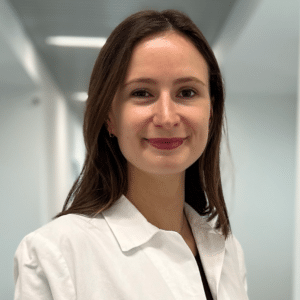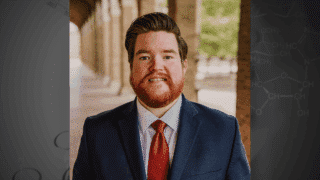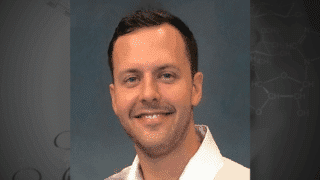 The PCC was pleased to select Sophia Krombholz as a PCC Fellow in 2024. We are excited to welcome Sophia to the PCC, and we look forward to supporting her important anti-doping research at the German Sport University Cologne.
The PCC was pleased to select Sophia Krombholz as a PCC Fellow in 2024. We are excited to welcome Sophia to the PCC, and we look forward to supporting her important anti-doping research at the German Sport University Cologne.
Background
Tell us about your educational background.
I have a degree in pharmacy from the University of Bonn. After a year of practice in the pharmacy and the pharmaceutical industry, I started my PhD at the Institute of Biochemistry of the German Sport University Cologne under the mentorship of Dr. Mario Thevis.
What educational/professional opportunities helped you reach this point in your career?
Early on, during my time at the university, I developed an interest in bioanalysis and analytical chemistry when I had the opportunity to intern in a hospital laboratory for therapeutic drug monitoring. I then pursued this interest further, including six months in the department for stability testing in the pharmaceutical industry. Ultimately, this led to the decision to do a PhD in this field.
Why did you choose to go into anti-doping research?
Anti-doping research combines so many things for me – sport, analytical chemistry, but also my interest in pharmaceuticals, their pharmacokinetics, and detection methods. I have always been fascinated by how it is possible to detect such small amounts of substances in an athlete’s sample, and I wanted to learn about that too!
Research
What do you find most interesting or exciting about your research area?
I really like the interdisciplinary nature of anti-doping research. There is not one standard procedure for detecting all substances, but you need expertise from all possible disciplines (chemistry, biology, pharmacy) to be able to detect the entire spectrum of analytes in the best possible way. I can therefore contribute my expertise when it comes to biopharmaceutical aspects and metabolism, but at the same time, I can also learn a lot myself.
What are your plans for your PCC-supported research, and what ultimate findings do you expect to see?
As a PCC fellow, I would like to follow up on the previous work of the Cologne Laboratory and investigate the metabolic fate of anabolic steroids by alternative routes of application (transdermal, buccal), in the context of possible contamination scenarios, but also to see if there is any influence on the detectability of these substances, particularly their so-called long-term metabolites.
What impact will your research have on furthering the field of anti-doping?
With this research I hope I can make an important contribution to the field of anti-doping science by providing a scientific basis and data to support the management of ambiguous results in doping control analysis.
Goals and PCC Benefits
What do you hope to accomplish through your fellowship experience?
During the fellowship, I’m looking forward to expanding my skills and knowledge on steroid analysis by working on this new project. In the context of my planned studies, the overall idea is to generate information that provides broader knowledge and a dataset for result interpretation that, ultimately, contributes to the best possible decision-making process in anti-doping.
What are your long-term research or career goals?
I would like to continue working as a scientist and developing analytical methods – whether in a medical, hospital, or even an anti-doping laboratory.
A Message from PCC Fellowship Mentor Dr. Mario Thevis
Hosting a PCC fellow is an enormous privilege as the program allows the creation of an environment that facilitates the focused and dedicated research and development work that is so urgently required in the anti-doping field. I see it as a great opportunity to leverage the expertise that the fellow brings to the team and, thereby, explore novel strategies that will strengthen the sports drug testing mission. In my role as PCC Fellow Mentor, I look forward to defining details of the overall research objective, providing insights, and contributing to identifying gaps that necessitate particular attention. And, obviously, I am particularly curious to see the results of Sophia’s projects, as they are expected to have an immediate impact on routine doping control processes as well as related result management proceedings. Having the opportunity to help design the experiments, see data materialize, and, most importantly, participate in training the next generation of anti-doping scientists while they explore new avenues in sports doping analysis is particularly rewarding.



